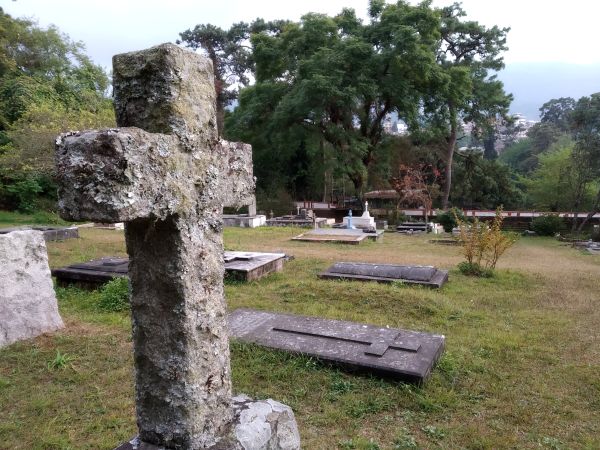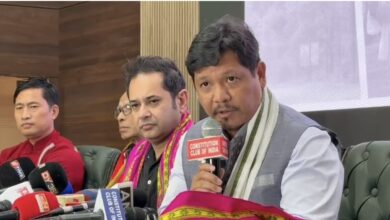Rethinking burial norms in Meghalaya
With land becoming a scarce resource, there is a need to consider cremation as an option

 The ongoing deliberations in the Meghalaya High Court over shared crematoria and cemeteries highlight a pressing reality: land is a finite and increasingly scarce resource.
The ongoing deliberations in the Meghalaya High Court over shared crematoria and cemeteries highlight a pressing reality: land is a finite and increasingly scarce resource.
As the court rightly observed, the acute shortage of burial space across Meghalaya — particularly in its urban and semi-urban areas — has necessitated the establishment of common burial grounds, even among different Christian denominations, many of which traditionally maintain separate cemeteries.
While such conversations are important to ensure interfaith harmony and spatial equity, this juncture also presents an opportunity for the Christian community in Meghalaya to reevaluate burial practices in light of evolving environmental, spatial and societal needs.
While burial is a long-held Christian tradition, it is not the only one. Cremation has been increasingly accepted across various Christian sects around the world, especially in nations where land availability is severely restricted. For instance, in countries such as Japan, Switzerland, the United Kingdom and Germany, cremation is now the norm among Christians. These shifts have been driven not only by pragmatic land use concerns but also by environmental considerations and a broader societal acceptance of alternative funeral rites.
The Roman Catholic Church, which once strictly forbade cremation, lifted its ban in 1963, provided that cremation is not chosen as a denial of Christian doctrine. Even the Vatican’s Congregation for the Doctrine of the Faith, in a 2016 document, acknowledged cremation as an acceptable practice, emphasising that the ashes must be respectfully preserved. In urban centres such as London, Rome, and Tokyo, crematoriums are widely used by Christian communities without any spiritual compromise.
Meghalaya, with over 75% of its population identifying as Christian and grappling with severe land scarcity, must not shy away from considering this alternative. The idea is not to disregard tradition but to evolve in response to current realities.
A proactive approach — encouraging cremation through awareness, sensitisation and theological engagement — could alleviate the mounting pressure on land resources while promoting a more sustainable and inclusive practice for all faiths.
Further, cremation also addresses potential public health concerns associated with congested cemeteries and unregulated burials. Given the region’s heavy rainfall and hilly terrain, improperly managed burial grounds can pose environmental risks, including contamination of water sources and land erosion.
As Meghalaya’s communities — Hindus, indigenous believers and Christians — navigate the sensitive issue of shared funeral spaces, it becomes imperative that all groups examine not only the question of where to bury or cremate, but also how to adapt respectfully and responsibly.
Land, after all, is not just a spiritual inheritance but a shared ecological resource. Recognising cremation as a practical and respectful alternative could be a progressive step in balancing tradition with contemporary demands.
(Views are personal)




